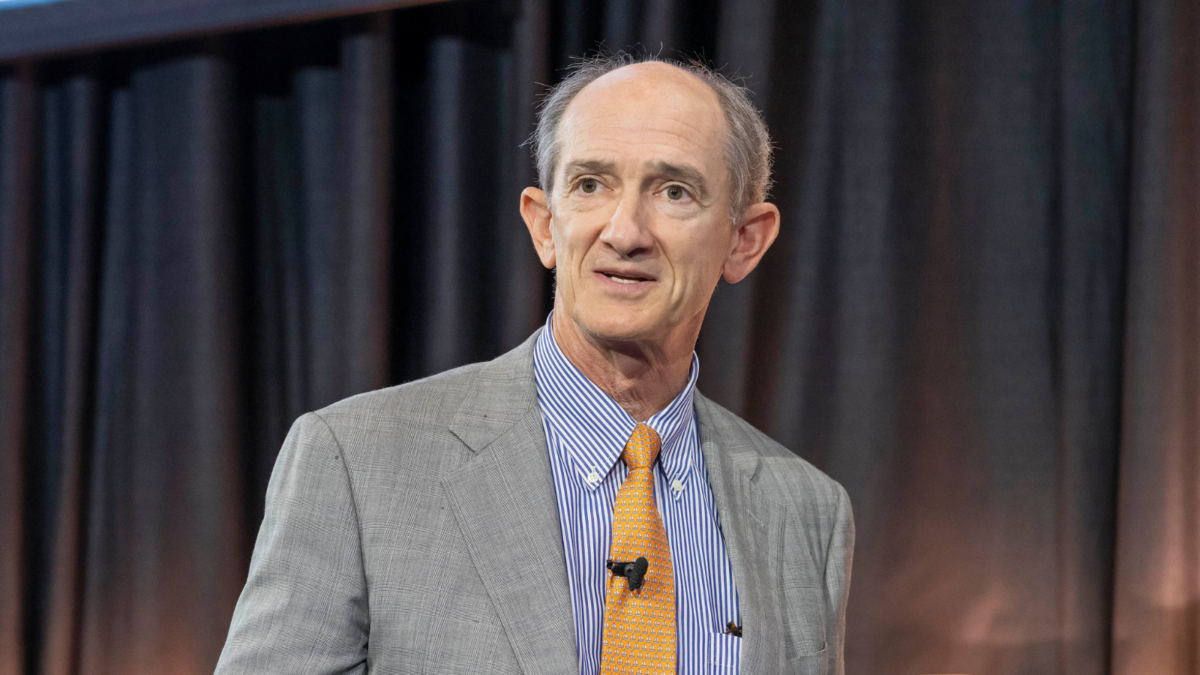Human sacrifices, active management and the ‘most valuable company in the world’
“This is a particular point in time where active management should shine,” Alec Cutler (pictured), a portfolio manager for Orbis Investments, told the Baillie Gifford/Orbis/MFS Active Advantage conference on Monday (February 27).
“Managers who are disciplined and managers who have skill should shine when the rising tide that lifted all boats during the momentum-driven passive cycle starts going out and the boats start going down. We can find the boats that can get up faster and do a better job for clients.”
The big cycle that value managers have been “living through and suffering with” has been the amount of liquidity going into the market. There’s been a massive liquidity cycle since the GFC that started – as most of them do – with central banks freaking out (which they do a lot, Cutler noted).
In the GFC central banks worried that the world was heading into a global economic depression that it would never get out of and shoveled money into the system.
That dovetailed right into the Covid – just before which things looked like they were stabilizing – and they dumped “four times more money” into the system. Ten trillion dollars has to go somewhere, and it mostly went into the public markets.
“Eventually you get a misallocation of capital and really crazy stuff starts to happen,” Cutler said. “And you get inflation because the misallocation of capital isn’t putting money into the things the economy needs and the central banks freak out,” Cutler said.
“A thousand years ago that might have been ‘hey, four good harvests, feeling flush, let’s build a temple and we can do some human sacrifices and have other parties’ rather than building a grist mill so you can be more productive. This time it would have been NFTs, stock jockey bros doing shots of crypto and taking an ARK fund chaser instead of investing in copper or education or our labour force.”
Eventually that misallocation of capital causes inflation, and central banks pull the punchbowl away from the party and you arrive at the bottom of the liquidity cycle – where we are today. How long it will last is anybody’s guess, but active managers “have an advantage in this regard”.
“If you’re contrarian, you’re active, you’re skilled and you’re in the right place in the right time, you can do very well,” Cutler said. “Not just hold your own in a massively tightening bursting bubble type environment. You can produce positive returns for your clients.”
Cutler sees opportunities in banks outside the US, which have been “altitude training for some time” – there’s been no net interest margin until recently. Semiconductor manufacturers are “excellent companies” and fewer and fewer of them are competing on leading edge chips; Samsung is leaving competitors behind in memory, while Taiwan Semiconductor Manufacturing Company (TSMC) is way ahead on logic and makes “all the advanced chips for Apple” – the company wouldn’t be sitting on a $2.5 trillion market cap if it weren’t for TSMC. They’d “probably be out of business” in a couple of months without it.
“And to avert the question – if TSMC gets taken out and Taiwan gets taken out the Chinese won’t have any fabs, they’ll all be burnt out hulks; if TSMC goes away that’s a big risk, and we’ve employed put-option strategies at times when we’ve been worried,” Cutler said. “But if that happens, Samsung becomes the most valuable company in the world. Samsung is larger, it produces more semiconductors than TSMC, and is second place in leading edge foundry. The hedge for TSMC is Samsung.”
Still, Cutler’s personal view is that there’s a low possibility of a near-term invasion of Taiwan. The difficulties Putin has had with his invasion of Ukraine would have given any prospective revanchists pause for thought, and Taiwan – a well-armed, highly-defensible island – is a much pricklier target than a country that shares a land border with its aggressor.
“China looked at what happened with Ukraine; they didn’t take Kiev in a week, didn’t cause regime change and has caused a massive drain on the Russian economy,” Cutler said. “Taiwan is harder to invade than Ukraine… the Taiwanese are going to be fairly prepared.”
“The Chinese have to win in two weeks. Otherwise all their supply lines are cut – China’s weak link is they get all their resources from the sea… so they’re looking at what happened with Russia and wondering how they can use it to their advantage. Putin in a way just turned Russia into China’s gas station.”
They can’t sell to the US or Europe; really, they can only sell to India or China. So Cutler’s guess is that China will spend the next five years building gas and oil pipelines from Russia and rail lines to bring in other raw materials so it’s in much better shape to solve the supply line issue.
“What that gives investors is a period of time where we can possibly invest in China again,” Cutler said. “However investing domestically in China now looks like a fantasy football kind of wager; do you really own it? Instead you can look at TSMC. Why is the most valuable company in the world selling at 13-14x earnings? Because of this fear of invasion.”
“The average memory span of an investor is six months to a year. Six months to a year from now, if there’s no saber rattling, that multiple is going to start rocketing higher because people will completely forget this thing hanging over Taiwan.”











